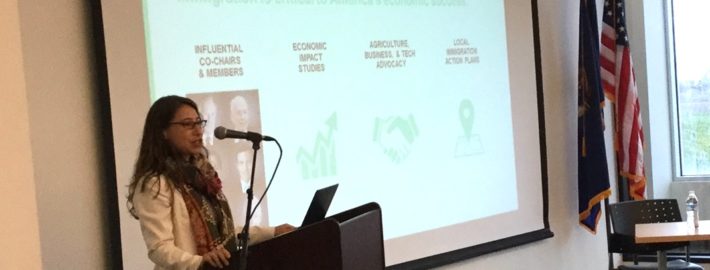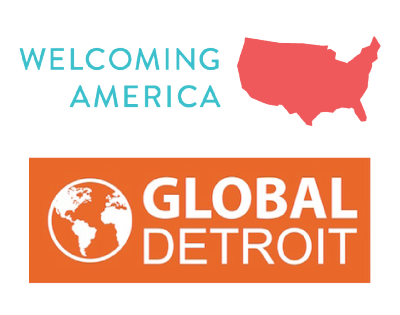Michigan Tackling Brain Waste Head On
A broad range of actors in Michigan are working together to tackle the issue of “brain waste”—the unemployment and underemployment of college-educated and professional immigrants and refugees. In many cities it is cliché to encounter the cab-driving immigrant engineer or refugee doctor waiting tables. But these examples of “brain waste” underscore real hardship for immigrants and refugees, and a real cost to the local economy. Michigan, like the rest of the Rust Belt and nation, suffers from a shortage of skilled workers—engineers, doctors, IT professionals, etc.—skills that many immigrants and refugees possess.
National leaders from the New American Economy (NAE) and World Education Services (WES) Global Talent Bridge joined Michigan Governor Rick Snyder’s Cabinet Director Mike Zimmer in a summit co-hosted by WE Global Members Global Detroit, the Michigan Office for New Americans (MONA). The May 1 summit included some 75 participants from refugee resettlement agencies, workforce development agencies, immigrant and ethnic service organizations, community colleges, the Detroit Mayor’s Office of Immigrant Affairs, and local employers.
In December 2016, NAE and WES joined the Migration Policy Institute in releasing the first-ever report quantifying the economic costs of “brain waste.” The report estimated that there are nearly two million highly-skilled immigrants in the U.S. working in low-skilled jobs or who are unemployed. This amounted to nearly $40 billion in lost wages and more than $10 billion in lost taxes.
The December 2016 study included deeper analysis in seven states including Michigan. Unlike the rest of the nation, Michigan’s “brain waste” for immigrants was no higher than for U.S.-born college-educated workers. There are several factors that contribute to the relative success of professional immigrants and refugees in Michigan, including high numbers of advanced degrees (54 percent of Michigan’s college-educated immigrants have an advanced degree compared to 36 percent nationally), stronger English skills, high penetration of work-related visas, and, as noted in the research, state and local “efforts not only to attract skilled immigrants and entrepreneurs, but also to reduce their underemployment.”
Global Detroit and MONA have been hard at work on these issues and the desire by national experts to release new data focused on Michigan and to discuss best practices in Detroit is a testament to our success. The Michigan International Talent Solutions (MITS) housed in MONA has helped to provide individual direct service to skilled-immigrants, in partnership with Upwardly Global. The average salary increase of skilled immigrants placed by the program is over $40,000. The State of Michigan also has written nearly 50 licensing and credentialing guides written for foreign-trained and educated professionals. Add to that the 124 Cultural Ambassador matches that Global Detroit has made for immigrant professionals and international students, as well as the Global Detroit Welcome Mat and other welcoming activities, and the evidence is clear that Michigan is “all-in” on this issue, according to Governor Snyder’s Cabinet Director Mike Zimmer.
“Michigan and Detroit are light-years ahead in combating brain waste,” noted WES Global Talent Bridge’s Director of Partnership and Program Development Katherine Gebremedhin. Her affirmations about our leadership were echoed by Paul Feltman, WES Global Talent Bridge’s Director and New American Economy’s Director of State and Local Initiatives Kate Brick who summed up the day’s underlying purpose, “Our country will only be successful if we welcome immigrants to help us build prosperity.”




